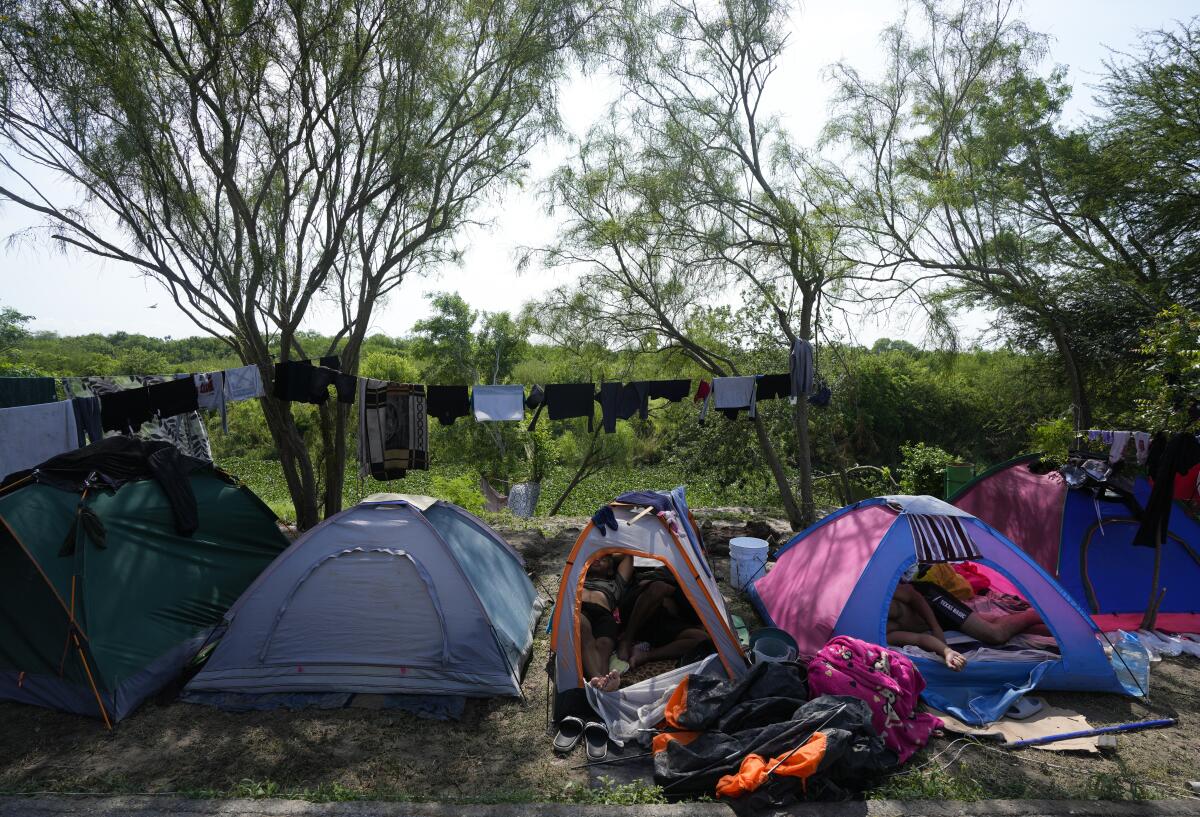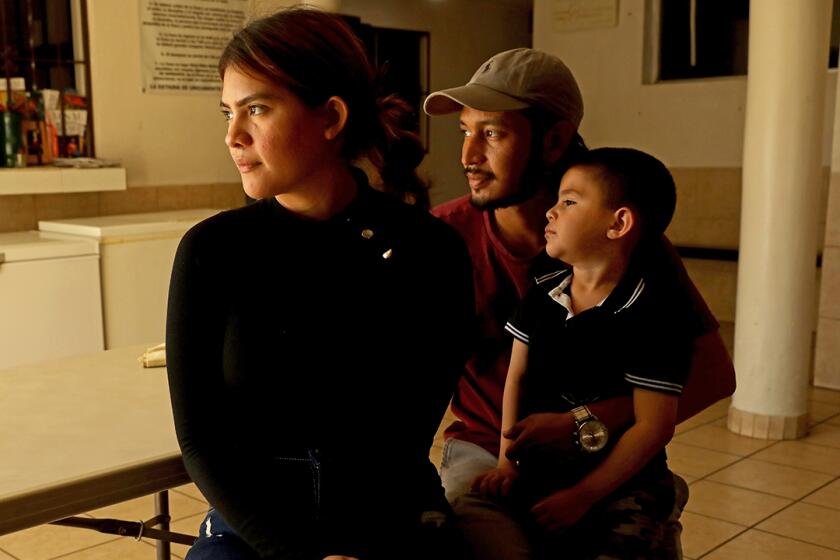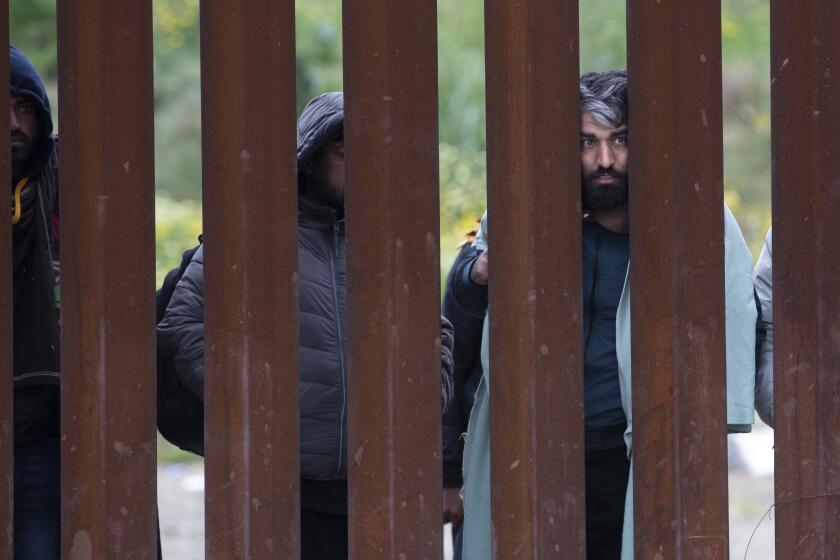Fewer Venezuelan arrivals lead to drop in illegal entries to U.S.

- Share via
SAN DIEGO — A 98% drop in Venezuelans arriving at the U.S. southern border has helped lead to a steep decline in migrants crossing illegally from Mexico since pandemic-related asylum limits expired last week, U.S. officials said Wednesday.
The Border Patrol has stopped migrants an average of 4,400 times a day since Friday, when a public-health rule known as Title 42 ended. The average includes the fewer than 4,000 migrants each of the last two days, said Blas Nuñez-Neto, assistant homeland security secretary for border and immigration policy. That’s down from a daily average of more than 10,000 in the four days leading to the end of Title 42.
“We continue to see encouraging signs that the measures we have put in place are working,” Nuñez-Neto told reporters, adding on a cautious note, “It is still too soon to draw any firm conclusions here about where these trends will go in the coming days and weeks.”
The Biden administration has been promoting a carrot-and-stick strategy that couples new legal pathways to the U.S. with consequences for those who don’t use them.
Just 1,000 appointments are granted daily through a U.S. Customs and Border Protection mobile app and the expiration of Title 42 has added more urgency to the quest to score one of them.
In the days leading up to the end of Title 42, the Border Patrol stopped 2,400 Venezuelans daily, followed by 1,900 Mexicans and 1,400 Colombians, Nuñez-Neto said. After Title 42, Mexicans replaced Venezuelans as the top nationality at 1,000 a day, followed by 510 Colombians and 470 Guatemalans. The number of Venezuelans plummeted to 50.
There are “early promising signs” that migration through Panama’s notoriously dangerous Darien Gap is falling, Nuñez-Neto said.
Migration from Venezuela also plunged in October after Mexico began taking back people from the South American country who were expelled from the U.S. under Title 42, which denied asylum on grounds of preventing the spread of COVID-19. But Venezuelans began arriving again in large numbers just before Title 42 expired, walking for days through Panama.
The U.S. has sent back “thousands” of Venezuelans, Cubans and Nicaraguans to Mexico under a new policy, in effect since Friday, that denies asylum to anyone who travels through another country, like Mexico, to cross the U.S. border illegally, with few exceptions, Nuñez-Neto said.
Migrants say Border Patrol is keeping them between the border walls for days without food or shelter
Several migrants interviewed from between the slats in the border wall said they’d been held there by agents for four to seven days without food or blankets.
The new legal pathways include allowing up to 30,000 Venezuelans, Cubans, Haitians and Nicaraguans to enter the U.S. monthly if they apply online with a financial sponsor and arrive by plane. The U.S. has also been admitting 1,000 people a day at land crossings with Mexico if they apply in northern Mexico on a mobile app called CBPOne. Nuñez-Neto said the number allowed on the mobile app will increase soon but did not say when or by how much.
So far, President Biden’s warnings that the border will be “chaotic for a while” have not unfolded as some thought, with numbers only about one-third of the government’s high-end estimates.
The Border Patrol had more than 28,000 people in custody last week, doubling in two weeks and prompting the agency to release thousands without notices to appear in immigration court. They were instead given notices to report to an immigration office within 60 days, drastically cutting down on processing time and allowing agents to open space in holding facilities.
On Tuesday, a federal judge in Florida extended his order, first issued last week, to prohibit the quick releases. Nuñez-Neto reiterated the administration’s disagreement with the court order Wednesday, while acknowledging that fewer crossings have eased custody conditions. On Sunday, the Border Patrol had 22,259 people in custody, down 23% from four days earlier.
More to Read
Sign up for Essential California
The most important California stories and recommendations in your inbox every morning.
You may occasionally receive promotional content from the Los Angeles Times.












